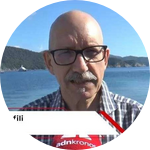About This Project
Chitosan, a natural flocculant used in water treatment and various other applications, is traditionally produced unsustainably using toxic methods from marine crustacean sources. We hypothesize that by using a green Deep Eutectic Solvent (DES) process, we can sustainably produce chitosan from organic waste-fed black soldier flies (BSF). Scaling our lab-method to a 10L pilot will assess its potential as an eco friendly alternative for large-scale water purification.
Ask the Scientists
Join The DiscussionWhat is the context of this research?
Access to clean water remains a pressing global challenge, as millions suffer from exposure to pathogens, heavy metals, and pollutants in contaminated water sources. Traditional water treatment methods often depend on synthetic chemicals, which can be environmentally harmful and costly. Simultaneously, conventional chitin extraction methods use harsh chemicals and high energy inputs, contradicting sustainability goals. My team and I have developed a green extraction method using Deep Eutectic Solvents (DES) to derive chitin from black soldier flies and convert it into chitosan, a biodegradable biopolymer with strong water purification potential. This project seeks to scale our lab-scale DES extraction method to a pilot level, paving the way for sustainable, circular-economy-based water treatment technologies that reduce environmental impact and create value from insect biomass.
What is the significance of this project?
This project represents a convergence of green chemistry, biotechnology, and environmental remediation. By scaling a sustainable extraction process for chitosan using deep eutectic solvents (DES) which are green solvents with minimal environmental impact, we’re tackling both pollution and chemical waste at once. Chitosan is a powerful, biodegradable material with exceptional coagulation and flocculation properties, capable of removing pathogens, heavy metals, and organic contaminants from water. Unlike synthetic alternatives, our process avoids harsh chemicals and enables circular use of insect waste. By supporting this project, backers enable the development of scalable, eco-friendly water treatment solutions while advancing the commercial viability of insect-derived biopolymers. The outcomes will contribute to cleaner water, reduced reliance on toxic chemicals, and the growth of a bioeconomy centered on sustainable practices.
What are the goals of the project?
This project scales a lab green extraction method to pilot (10L) to produce chitosan from black soldier flies for water treatment. Over the span of 8 months, we’ll procure 10kg of certified black soldier fly puparium for multiple batches of chitosan production.
A 10L jacketed reactor with a high shear mixer will perform DES-based deproteinization of the puparium, which is the crucial step in removing proteins to isolate pure chitin. Chitin will be neutralized, filtered, and deacetylated in a second reactor to produce chitosan, systematically optimizing solvent ratios, temperature, and reaction time for yield, deacetylation, and molecular weight.
Energy, waste, and safety metrics (pH, temp) will be tracked. To evaluate chitosan’s water treatment efficacy, we’ll test its ability to remove heavy metals (Pb, As, Cd, Cr, Fe), pathogens (E.coli) and organic pollutants (dyes) from laboratory-prepared contaminated water samples to simulate various pollution scenarios.
Budget
Our budget supports three core objectives: scaling up, ensuring quality, and demonstrating efficacy.
Equipment includes the essential jacketed reactor system, high-shear mixer, filtration system, and deacetylation setup, all vital for transitioning from lab to pilot scale.
Materials cover our renewable raw materials (black soldier fly puparium) and green DES components choline chloride and lactic acid.
Analytical services ensure our chitosan meets quality standards through FTIR spectroscopy, molecular weight analysis, and deacetylation testing.
Personnel costs fund a research assistant for daily operations.
The remaining funds support documentation, optimisation software, and contingency planning.
This balanced allocation ensures we can develop standardised, scalable protocols for producing environmentally friendly chitosan, addressing both water pollution and sustainable materials production challenges.
Endorsed by
 Project Timeline
Project Timeline
The project follows a structured three-phase plan over 8 months:
Phase 1 focuses on procuring equipment, raw materials and setting up the pilot-scale extraction equipment with integrated safety and monitoring systems.
Phase 2 includes pilot-scale extraction runs and process optimisation.
Phase 3 covers chitosan production and water treatment testing. Final months are dedicated to data analysis, impact assessment, and protocol development.
May 20, 2025
Project Launched
Jun 30, 2025
Pilot-scale equipment and raw materials procurement, reactor setup, safety systems and monitoring integration
Jul 31, 2025
System calibration, process flow finalisation, and operational protocol development
Sep 30, 2025
Pilot-scale extraction runs, identification of bottlenecks, process refinement, sustainability assessment
Nov 30, 2025
Chitosan production, characterisation, and water treatment performance testing
Meet the Team
Team Bio
We are a multidisciplinary team at Entoplast, led by Dr. Vincenzo Di Ilio, focused on developing sustainable biopolymer technologies using black soldier flies. With expertise in green chemistry, environmental science, and process engineering, we are committed to creating scalable, eco-friendly solutions for water treatment and circular economy innovation.
Vincenzo Di Ilio
I am an insect physiologist, co-founder and director of ENTOPLAST Ltd.
My main interests are the physiological and behavioural modifications induced in insects by applying different chemical and ecological agents.
After the PhD achieved at the University of Siena (Siena, Italy) in 2001, I published several studies on the integrated control of pests of economic and medical importance.
In 2015, I was awarded an EU - Marie Sklodowska Curie Fellowship for a highly innovative project on insect behavioural conditioning.
I have experience in the breeding, life strategies, behaviour and reproductive physiology of several insect species including the Black Soldier Fly and have ongoing scientific collaborations with Universities and Research Centres in the UK, Italy and the U.S.A.
Rafay ul Azeem
As an engineering professional bridging technical research and commercial strategy, I work as a commercial analyst and researcher at Entoplast. With strong technical expertise developed through a Master’s in Supply Chain Management and a Bachelor’s in Aerospace Engineering from the University of Hertfordshire, I bring extensive experience in procurement and supply-chain coordination, production optimisation, and hands-on laboratory operations. My research interests include the exciting field of 3D printing chitinous materials for medical applications where my research has led to a publication. This blend of technical and commercial understanding enables me to effectively collaborate across teams to analyse complex challenges and deliver tangible results.
Richard Hillier
I am one of the commercial (marketing and sales operations) leads at Entoplast Ltd.
Together with the team at Entoplast, I am tasked with promoting the benefits of using chitin and chitosan across a wide range of applications - from waste water treatment to haemostatics and everything in between.
Chitin really is an amazing biopolymer - and is abundant in nature. We extract chitin from Black Soldier Flies using our own methodology.
Our mission is to bring chitin and chitosan to the wider world!
Malcolm MacKenzie
Malcolm MacKenzie, Co-founder and Director of Entoplast Ltd, brings extensive expertise in sustainability-driven biotechnology and strategic business development. With a strong background working with plastic manufacturers, converters, and UK retailers on achieving environmental objectives, he now focuses on overseeing project execution, aligning research with business goals, and driving commercialisation efforts for innovative biomaterials.
Lab Notes
Nothing posted yet.
Project Backers
- 9Backers
- 13%Funded
- $1,220Total Donations
- $135.56Average Donation






